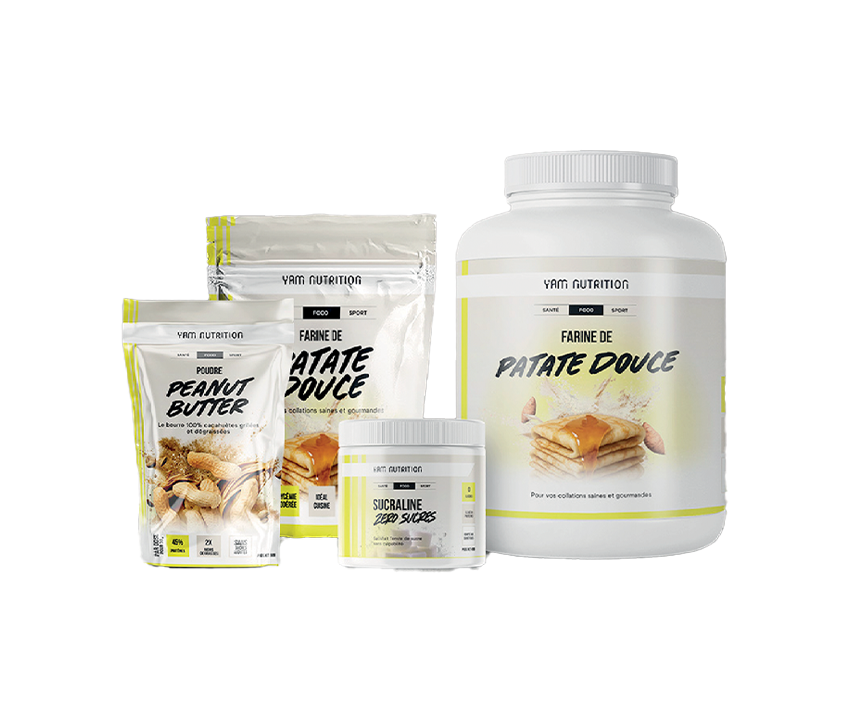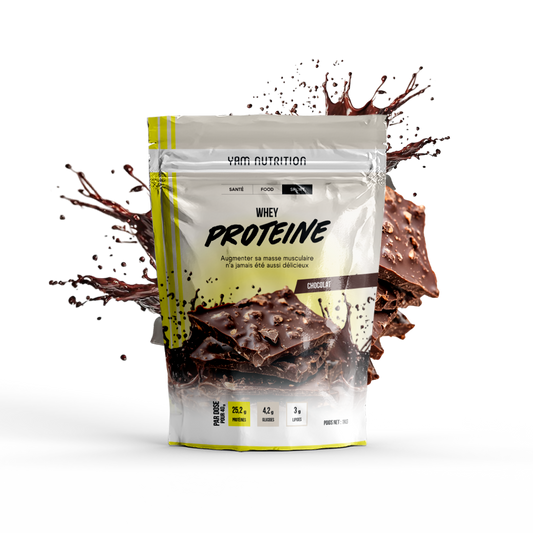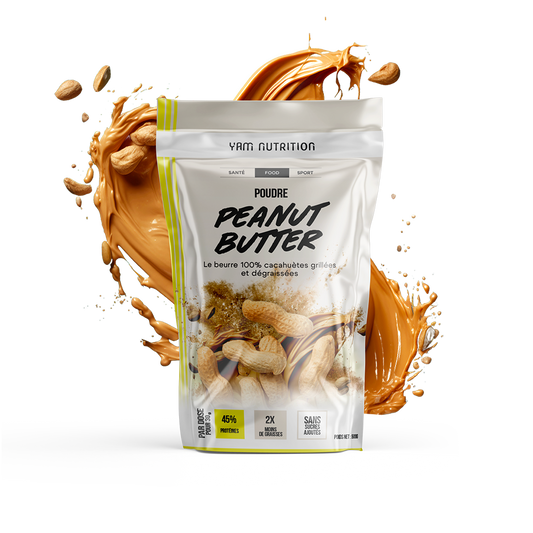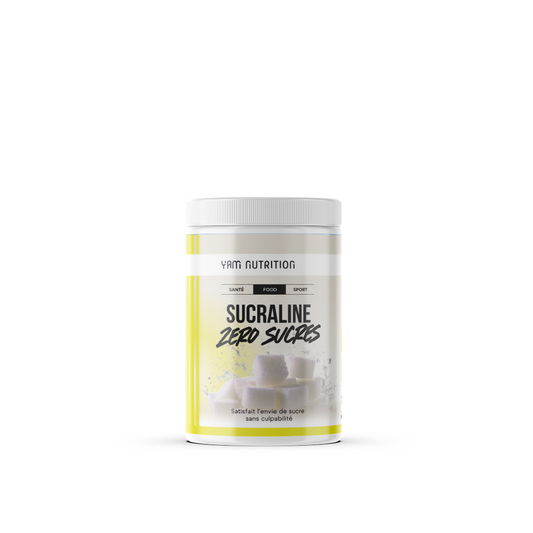Is whey dangerous?

Sommaire
- Whey is a protein powder produced using strict industrial manufacturing processes.
- A milk protein rich in essential amino acids, BCAAs, leucine and glutamine
- What health precautions are required for manufacturing protein powder?
- French and European whey powder manufacturers are the majority players in the sports nutrition market.
- Native or non-native whey?
- Can digestive issues reduce the absorption of protein powder?
- Should lactose intolerance prevent you from drinking whey?
- Whey misconceptions: when ridicule clashes with science and common sense
- People far removed from sport are spreading misinformation about whey and other protein powders.
- Should people with kidney or liver disease avoid taking protein powder?
- Is whey protein dangerous? We can seriously doubt it and laugh about it...
- How to integrate whey into your diet in a healthy way to reap the benefits?
- Finally, is whey dangerous?
Whey protein has been present in the food and sports nutrition market for over 60 years. In English, it's whey protein , a term that has entered the language of French sports nutrition. Is whey really dangerous? A protein powder widely consumed by bodybuilders , thousands of tons are consumed each year. Naturally, as with all food products consumed in France, protein powders must meet rigorous health standards. Packaged as powder from milk, whey (lactoserum or whey) or micellar casein are considered processed foods. In this regard, hundreds of foodstuffs are processed every day, without this saying much about their nutritional quality, at most giving us a clue. Naturally, the transition from liquid milk to a fine protein powder involves a transformation. In this case, it involves multiple filtrations to separate the amino acids from the liquids, minerals, and lactose present in the original milk. This does not imply that it is dangerous or harmful to human health, contrary to what some ill-informed minds would have you believe...
Building muscle mass has never been so delicious Peanut butter made with 100% roasted peanuts 15kcal/pressure
Whey Protein
Sale price
From 37,90 €
Peanut Butter Powder
Sale price
24,90 €
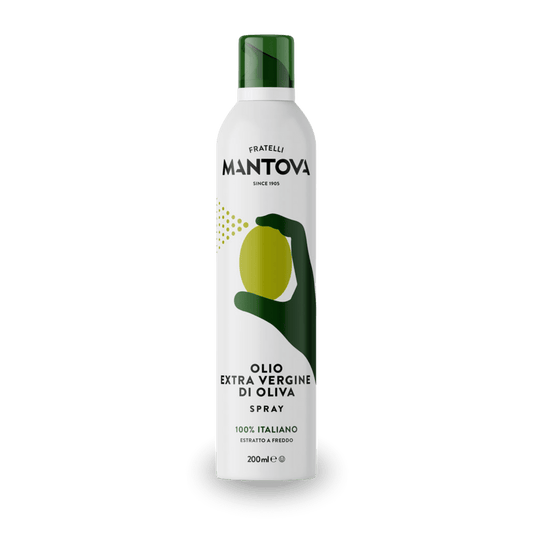
Olive Oil Spray
Sale price
9,90 €
Whey is a protein powder produced using strict industrial manufacturing processes.
As for the food manufacturing of protein powder, several processes are used in industrial settings, on a small or large scale. Some of them have been gradually abandoned because they deteriorated the nutritional quality of the final product. The turning point came during the 1990s when China began to import whey powder en masse to feed the farmed pigs it sells. Paradoxically, whey powder was cheaper to manufacture than whole milk powder. The evolution and modernization of industrial techniques have made it possible to obtain a whey powder richer in amino acids essentials, and above all, in greater quantity at a reduced price. Originally, the whey from milk was considered a waste product from cheese manufacturing. Today, it is the best-selling protein powder in the world, thanks to its very high nutritional quality. The industrial modernization of manufacturing processes has thus made it possible to offer better quality whey at a much lower price. The sports nutrition market has benefited from this, which explains the mass appearance of whey concentrates and isolates on specialized sites and food supplement stores.
A milk protein rich in essential amino acids, BCAAs, leucine and glutamine
Since the early 2000s, you can benefit from a much better quality whey, purer and richer in essential amino acids, in BCAA and leucine, while paying much less than before. The price/quality ratio for sports consumers has improved significantly, despite the evolution of raw material prices. Clinical studies carried out with athletes have also confirmed the interest of whey in improving sports performance and muscle hypertrophy . These empirical and scientifically proven results have popularized whey among bodybuilding practitioners.
What health precautions are required for manufacturing protein powder?
In purely practical terms, a protein powder is a dehydrated protein extracted from a food source. However, strict health standards apply, as with any processed food product. Protein powders, like other lightly processed products, do not pose any adverse health effects to healthy individuals. However, certain precautions should be taken by those with certain medical conditions. If you suffer from kidney, liver, or cardiovascular disease, it would be prudent to consult your doctor before consuming protein powder. But obviously, if you are consuming protein- or carbohydrate-rich supplements, optimal hydration is absolutely imperative. Both protein and carbohydrates require water to be absorbed.
French and European whey powder manufacturers are the majority players in the sports nutrition market.
Regarding whey, most food sources are European, as industrial manufacturers have no interest in exporting milk from foreign countries, given the transport costs involved. However, when nutritional quality is a priority, some manufacturers may use distant suppliers of whey powder. This is the case, for example, for New Zealand, which has chosen to offer a dairy source whose cows are fed exclusively on grass and outdoors, for example. However, the cost remains very high and this solution is becoming less and less attractive for European manufacturers, who now prefer to turn to small dairy farms that offer equivalent milk quality with a slightly fresher product, given the very short transport distance. In addition, many consumers ask us whether native whey should be favored over non-native whey?
Native or non-native whey ?
Native or non-native, the milk is always pasteurized, because it is food safety and sanitary for consumers. It is a legal obligation , regardless of the milk considered and regardless of its processing. Nutritionally, native whey is generally richer in leucine and cysteine. The main advantage of native whey is mainly based on the traceability of the raw materials and the milk used to make the whey powder. The first scientific studies on this type of protein have demonstrated a higher presence of leucine , without this changing much on the muscle growth bodybuilders in the long term (3). That said, older athletes may be able to derive more nutritional benefits from it since protein assimilation becomes more difficult with aging. However, this remains rather speculative and unproven at this time… In contrast, scientific research shows that leucine, when taken with glycine , stimulates muscle hypertrophy more efficiently.
Can digestive issues reduce the absorption of protein powder?
Some people may experience a certain sensitivity in terms of intestinal assimilation. However, this type of digestive disorder is quite rare. Currently, the manufacturing quality of protein powders makes it possible to avoid this type of problem. A particularly light protein, whey does not generally cause digestive problems. If this is the case, it is more likely that your intestinal balance is disturbed. To this end, a probiotic-based food supplement could help you regain healthy and rapid digestion. From the moment your intestinal microbiota is balanced (intestinal flora), digestive disorders will become rarer.
Should lactose intolerance prevent you from drinking whey?
Some people are lactose intolerant, but there's not much they can do about it. The absence of the lactase enzyme explains this intolerance to milk sugar. However, high-quality whey isolates contain only trace amounts of lactose, a negligible amount that shouldn't cause digestive problems. Concentrated whey, on the other hand, still contains a few grams. Therefore, avoid them if you suffer from lactose intolerance. That said, this is a problem you'll encounter with all milk-based protein powders, but it's unlikely that the few traces of lactose still present in a whey isolate will actually cause digestive problems.
Whey misconceptions: when ridicule clashes with science and common sense
Some preconceived ideas are still circulating about protein powders and their supposed harmful effects. The same absurd speeches are also circulating about the creatine . But curiously, these prejudices are still peddled by sedentary overweight or poorly informed young athletes who only repeat the nonsense that has been whispered into their ears. Naturally, neither of them have taken the time to verify the information they are peddling from serious scientific sources . Thus, according to these individuals, protein powders could damage the kidneys, lead to diabetes or obesity. On the contrary, science shows that proteins produce an effect fast appetite suppressant , that they require more energy to be assimilated and that they stimulate the muscle growth , as opposed to body fat.
Similarly, these people have never questioned those who follow a high-protein diet and lose weight while maintaining their muscles. The facts drawn from real life are diametrically opposed to what they put forward, without them even really noticing it. Once again, talking about sports nutrition in a serious manner assumes that we are close to the facts and the most serious clinical studies on the subject. Internet influencers are numerous, but they are not always very rigorous about scientific facts, which they tend to distort, ignore, or select without context in order to support their biased arguments.
People far removed from sport are spreading misinformation about whey and other protein powders.
Let's be realistic, the first people to tell you that your whey shake is dangerous for your health are those who rush into the Fast food with overweight close to obesity. However, these people like to play tourists in gyms to give themselves a good excuse. They are not without drinking more than is reasonable, sometimes to the point of drunkenness, as they repeat every weekend under the pretext that life is short and you have to know how to enjoy it. Yet this is how misinformation and excuses spread. Do you really think you have to waste your time with these individuals? In reality, it is very unlikely; even less so to listen to them...
Should people with kidney or liver disease avoid taking protein powder?
For medical reasons X or Y, some people suffer from kidney failure or another disease related to kidney or liver function. Their doctor has therefore advised them to reduce their protein intake. Naturally, it would be wise to follow this advice and spare these organs so as not to aggravate this health problem. Thus, if you are suffering from kidney or liver disease, it would be better to exercise caution. Conversely, a high-protein or high-protein diet does not pose any particular problems for these organs in healthy adults. Clinical studies have already demonstrated this (2).
Is whey protein dangerous? We can seriously doubt it and laugh about it...
On the other hand, unbalanced diets, rich in fats and sugars, will contribute to a progressive deterioration of the liver and pancreatic health of people in a much more certain way, as scientific research demonstrates again. When the liver becomes fat, the pancreas also deteriorates, causing type 2 diabetes, not to mention excess weight and the cardiovascular risk associated with it. An unhealthy diet, rich in ultra-processed foods will be much more harmful to health than a protein powder whose production has been controlled from a health and microbial point of view, as required by current regulations.
How to integrate whey into your diet in a healthy way to reap the benefits?
Before incorporating whey into your diet, you need to know why you're doing it. In other words, you need to integrate it into your fitness or health goals. Indeed, whey is a harmless protein powder that will help you gain muscle if you're bodybuilding or help you lose weight if you're in weight loss diet. In this way, Whey can be taken between meals to help you increase the amount of lean protein you consume each day. Similarly, whey only provides pure protein rich in essential amino acids , without other nutrients. Thus, it is low in calories and does not pose a particular danger to your figure. On the contrary, whey will help you burn more fat because proteins lead to satiety more quickly. In other words, whey will prevent you from the risk of cravings and snacks that could upset your weight loss diet . Finally, is whey dangerous? I think we've answered the question quite comprehensively...
Finally, is whey dangerous?
You will understand that whey is not a danger to your health. On the contrary, it constitutes an optimal intake of pure protein, with an optimal richness in amino acids such as leucine (BCAA), arginine, glutamine or the sulfur amino acids cysteine and methionine. Obtained from industrial processes that increasingly respect the raw material, current whey has nothing to do with that which was offered to you more than 20 years ago by American brands that sourced from Asia. Today, even the Chinese have understood that it is necessary to make quality because consumers are more and more careful about what they consume, whether it is food supplements or their diet...
1 – Hamarsland et al., Native Whey Induces Similar Post Exercise Muscle Anabolic Responses as Regular Whey, Despite Greater Leucinemia, in Elderly Individuals , J Nutr Health Aging, 2019;23(1):42-50.
2 – Tay, Jeannie et al., Long-Term Effects of a Very Low Carbohydrate Compared With a High Carbohydrate Diet on Renal Function in Individuals With Type 2 Diabetes, A randomized Trial , Medicine 94(47): p e2181, November 2015.
3 – Hamarsland H, Aas SN, Nordengen AL, Holte K, Garthe I, Paulsen G, Cotter M, Børsheim E, Benestad HB, Raastad T. Native Whey Induces Similar Post Exercise Muscle Anabolic Responses as Regular Whey, Despite Greater Leucinemia, in Elderly Individuals , J Nutr Health Aging. 2019;23(1):42-50.
Eric MALLET
Spécialiste en Nutrition Sportive
